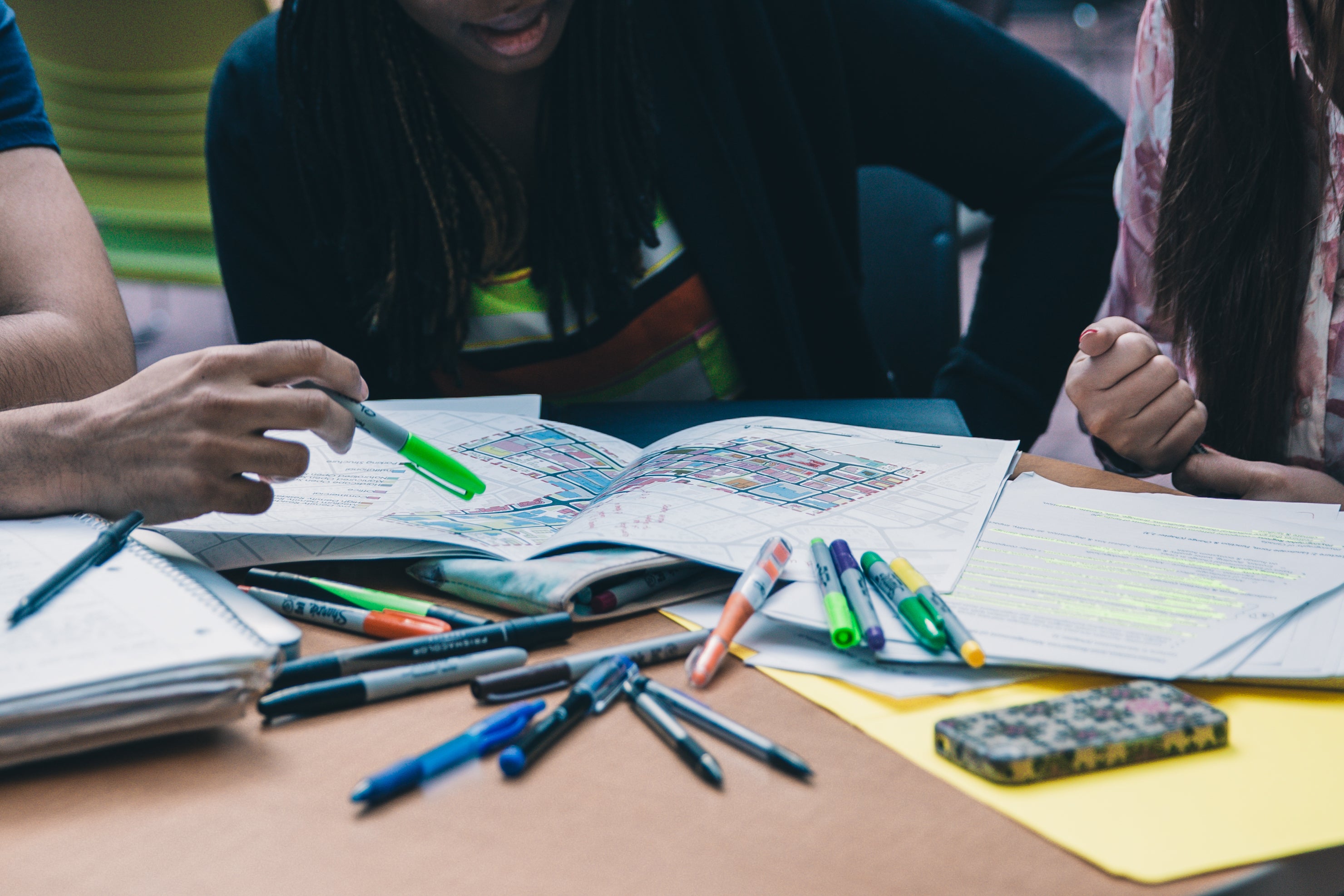EL OFICIO DE SER DOCENTE
AGENCIA Y PAREJA PEDAGÓGICA
Palavras-chave:
agencia, formación docente, pareja pedagógica, prácticas educativasResumo
El presente trabajo describe un estudio desarrollado entre los años 2021 y 2022 con el objetivo de conocer si el trabajo en pareja pedagógica promueve la agencia de futuros formadores, a partir de la planificación de una clase invertida sobre temas específicos de ciencias políticas. La investigación se desarrolló junto a 25 estudiantes, de segundo y cuarto año del Profesorado en Ciencias Jurídicas, Políticas y Sociales de la Universidad nacional de Río Cuarto (UNRC), Argentina. Para la recolección de datos, se usó un cuestionario con preguntas abiertas, en tanto el diseño metodológico es cualitativo, administrado de manera online. Los resultados muestran que la agencia de los estudiantes se construye y se expresa en tres situaciones ligadas a la formación y las prácticas docentes: la construcción del conocimiento, el diálogo y los intercambios de sostén y los imprevistos. Los hallazgos permiten repensar la formación docente inicial y los modos de propiciar contextos educativos que invitan a la participación proactiva de los estudiantes en sus propias prácticas.
Referências
Askew, S. y Lodge, C. (2000). Gifts, ping- pong and loops – linking feedback and learning. En S. Askew (Ed.). Feedback for learning (pp. 1-19). Routledge.
Aspbury-Miyanishi, E. (2022). The affordances beyond what one does: Reconceptualizing teacher agency with Heidegger and Ecological Psychology. Teaching and Teacher Education, 113, 103662. https://doi.org/10.1016/j.tate.2022.103662
Baynham, M. (2006). Agency and contingency in the language learning of refugees and asylum seekers. Linguistics and Education, 17(1), 24-39. https://doi.org/10.1016/j.linged.2006.08.008
Biesta, G. y Tedder, M. (2007). How Is Agency Possible? Towards an Ecological Understanding of Agency-as-Achievement. Learning Lives: Learning, Identity, and Agency in the Life Course. Working Paper Five, Exeter: Teaching and Learning Research Programme. https://www.scirp.org/(S(351jmbntvnsjt1aadkposzje))/reference/ReferencesPapers.aspx?ReferenceID=1447548
Charteris, J. y Smardon, D. (2015). Teacher agency and dialogic feedback: Using classroom data for practitioner inquiry. Teaching and Teacher Education, 50, 114-123. https://doi.org/10.1016/j.tate.2015.05.006
Cresswell, J. (2015). A Concise Introduction to Mixed Methods Research. Sage.
Edwards, A. (2017). The dialectic of person and practice: How cultural-historic accounts of agency an inform teacher education. En J. Clandinin y J. Husu (Eds.), The SAGE handbook of research on teacher education. Sage.
Gaitán-Pedraza, Germán, Villamizar, Diego F. y García-Díaz, John J. (2022). La práctica reflexiva en la práctica pedagógica de dos licenciaturas en educación física: narrativas de docentes en formación. Formación universitaria, 15(3), 119-132. https://dx.doi.org/10.4067/S0718-50062022000300119
Gottlieb, D. (2012). Beyond a rule-following model of skillful practice in teacher development. Educational Theory, 62(5), 501-516. https://doi.org/10.1111/j.1741-5446.2012.00459.x
Habermas, J. (1990). Moral consciousness and communicative action. Trans. C. Lenhardt & S. Weber Nicholson. MIT Press.
Kim, M. Y. y Wilkinson, I. (2019). What is dialogic teaching? Constructing, deconstructing, and reconstructing a pedagogy of classroom talk. Learning, Culture and Social Interaction, 21, 70-86. https://doi.org/10.1016/j.lcsi.2019.02.003.
Kornblit, A. L. (2007). Metodologías cualitativas en ciencias sociales. Biblos.
Lane, J. L. y Sweeny, S. P. (2019). Understanding agency and organization in early career teachers’ professional tie formation. Journal of Educational Change, 20(1), 79–104.
Loizaga, A., Stefanolo, M. y Tevez, D. (29 de mayo 2009). La pareja pedagógica como dispositivo de intervención en integración escolar. https://ele.chaco.gob.ar/pluginfile.php/991598/mod_folder/content/0/7.%20Material%20N%C2%B0%207%20-%20%E2%80%9CLa%20pareja%20pedag%C3%B3gica%20como%20dispositivo%20de%20intervenci%C3%B3n%20en%20integraci%C3%B3n%20escolar%E2%80%9D%20%281%29.pdf?forcedownload=1
Mercer, N. (1995). The guided construction of knowledge: talk amongst teachers and learners. Multilingual Matters.
Moate, J. (2014). Dialogic struggles and pedagogic innovation. Pedagogy, Culture & Society, 22(2), 295-314. https://doi.org/10.1080/14681366.2014.891641
Omland, M. y Rødnes, K. (2020). Building agency through technology-aided dialogic teaching. Learning, Culture and Social Interaction, 26, 100406. https://doi.org/10.1016/j.lcsi.2020.100406
Perrenoud, P. (2014). Desarrollar la práctica reflexiva en el oficio de enseñar. Graó.
Priestley, M., Biesta, G. y Robinson S. (2013). Teachers as agents of change: teacher agency and emerging models of curriculum. En M. Priestley, G. Biesta (Eds.), Reinventing the curriculum: New trends in curriculum policy and practice. Bloomsbury Academic.
Priestley, M., Biesta, G. y Robinson, S (2015). Teacher agency: What is it and why does it matter? En R. Kneyber, J. Evers (Eds.), Flip the system: Changing education from the bottom up. Routledge. https://doi.org/10.4324/9781315678573
Sanjurjo, L., Caporossi, A., Placci, N. (20 septiembre, 2016). La pareja pedagógica como dispositivo de evaluación en la formación docente universitaria. http://ridaa.unq.edu.ar/handle/20.500.11807/764
Teng, F. (2019). Autonomy, agency, and identity in teaching and learning English as a foreign language. Springer.
Van Lier, L. (2001). Constraints and resources in classroom talk: issues of equality and symmetry. En C. Candlin, N. Mercer (Eds.), English language teaching in its social context. Routledge.

Downloads
Publicado
Edição
Seção
Licença

Este trabalho está licenciado sob uma licença Creative Commons Attribution-NonCommercial-ShareAlike 4.0 International License.
Atribución No Comercial Compartir Igual (by-nc-sa):
No se permitirá un uso comercial de la obra original, ni de las posibles obras derivadas, la distribución de las cuales se debe hacer con una licencia igual a la que regula la obra original.






